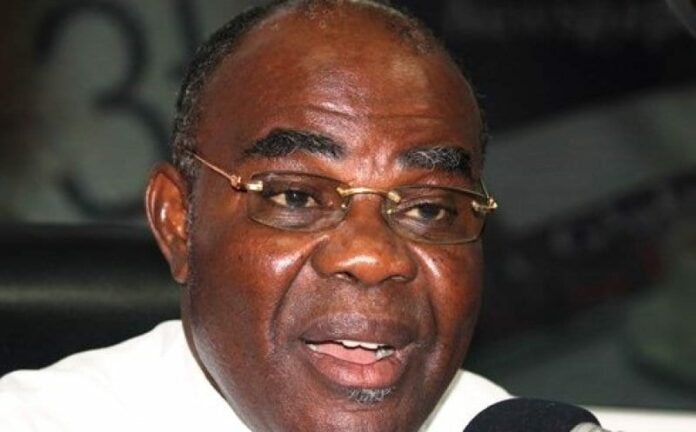A former Attorney General, Nii Ayikoi Otoo has said that the Supreme Court ruling that a Deputy Speaker can vote, does not violate any parliamentary rule.
He says he does not think that the ruling is a violation of parliamentary rules because the Standing Orders of Parliament do not supersede the 1992 constitution which is the supreme law of the land.
He told Dzifa Bampoh on the First Take on 3FM, Wednesday March 9 that “Whatever anybody has now it is a bit too late. The Supreme Court is the final authority. The other thing that you can do is to go for a review.”
Regarding whether or not the ruling violates parliamentary rules, he said “Not at all.”
“There is no other law in the country which is superior than the constitution, so whether Members of Parliament are masters of their own rules, all their rules should not be above the constitution.”
Regarding whether or not the Plaintiff can file for a review of the ruling, he said “You look at whether the decision was split or unanimous, how many judges sat on it. Are you sure that you can get them to change their minds to the extent that you are going to get 5-2 or 4-3? I doubt.
“When it is so unanimous and there is no fundamental error that has been committed by the court it will be very difficult to go for a review.”
The apex court on Wednesday dismissed an application to pronounce as unconstitutional, Joseph Osei Wusu’s action of counting himself for the purposes of quorum.
Justice Jones Dotse ruled that the Deputy Speaker of Parliament participation in voting was constitutional.
Private legal practitioner and law lecturer, Justice Abdulai subsequent to the November 30, 2021 clash between Speaker Bagbin and his First Deputy after the latter overturned an earlier vote of the House rejecting Government’s 2022 Budget invited the Supreme Court to pronounce as unconstitutional, Deputy Speaker, Joseph Osei Owusu’s action of counting himself for the purposes of quorum.
He argued in the context of articles 102 and 104 of the 1992 Constitution that the Deputy Speaker was not permitted to count himself for the purposes of quorum, since he had neither an original nor a casting vote as Speaker presiding.
But the 7-member panel of justices ruled that the Member of Parliament for Bekwai exercised his right constitutionally, TV3’s Laud Adu Asare who was in court reported.
The SC struck out the standing order 109(3) which says a Deputy Speaker or any other member presiding shall not retain his original vote while presiding.
It furthered that the Deputy Speaker can be counted during the quorum for decision making according to article 104(1)
Justice Jones Dotse noted that the full ruling will be made available on Friday, March 11.
Addressing a press conference in Parliament to react to the ruling, the Minority Leader Haruna Iddrisu said “Our attention has been drawn to a very disappointing ruling of the Supreme Court of Ghana which more or less will amount to a judicial interference in time tested Parliamentary practice and establishment convention.
“Everywhere in the world in civilized democracies including the United Kingdom the presiding officer’s vote is discounted. So it is not for nothing that article 102 provides that a person presiding shall have no original nor casting vote. The Supreme Court, to put it aptly, this ruling is judicial support for E-levy.”
By Laud Nartey|3news.com|Ghana


